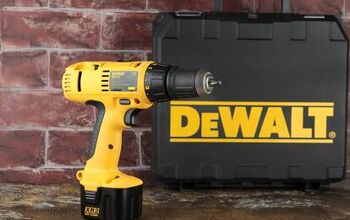Whirlpool Washer Making Loud Noises During The Wash Cycle?

When it comes to washers, dryers, and kitchen appliances, Whirlpool is one of the most recognizable brands on the market. They have been around for years, becoming a favorite of customers everywhere for their line of products.
Whirlpool washers can make a loud noise during the wash cycle due to a bad transmission, drive pulley, or belt. Worn bearings, damaged motor coupling, and clutch issues can also cause a Whirlpool washer to be loud during a cycle. Inspect the drain pump and replace bad parts to reduce the noise during operation.
Do You Need Appliance Repair Services?
Get free, zero-commitment quotes from pro contractors near you.

6 Common Reasons For A Whirlpool Washer To Make a Loud Noise During The Wash Cycle
1. Bearing Issues
Each Whirlpool washing machine has several types of bearings within. When one of those bearings wears down, becomes defective, or breaks, it can result in loud noises while the washing machine runs its wash cycle.
- Tub bearing. The tub bearing can be found in the middle portion of the outer tub. This bearing is responsible for keeping the inner tub spinning as smoothly as it can. Unfortunately, the repair is very involved. If you want to do it yourself, you will have to take most of the washer apart. If the bearing is worn or defective, replace both the bearing and the outer tub itself to ensure an optimal repair.
- Rear drum bearing. In the rear drum, there is at least one bearing though there may be a few different ones. They help to keep the inner tub spinning and moving as smoothly as possible. When any portion of the tub bearing system gets worn down or becomes defective, the washer will become quite loud during the wash cycle.
Depending on the model, the bearings can be sold separately from the drum itself. Still, the best bet is to replace both the bearing and the outer drum. The manufacturer may offer components together since it can be difficult to press in the new bearing.
- Consider professional intervention. Changing out the bearing may sound easy, but it requires taking apart the washer. If you aren’t experienced in washer repair, calling in a professional may be a better idea to prevent other issues.
What Do Worn Drum Bearings Sound Like?
While it is helpful to know that there could be issues with the drum bearings, that information doesn’t do a whole lot if you don’t know what you’re listening for. There is one common noise to look out for with bearings and that is a rumbling noise.
If you notice that your washing machine is rumbling loudly, start by checking out the bearings. More often than not, that will be the sole cause of the louder than normal wash cycle.
How Do I Tell if My Washing Machine Bearings are Bad?
Part of being a do-it-yourself is learning on the fly. You know that your washing machine is making some kind of weird noise but you’re not certain what it is. You think that the bearing could be bad, so you take the washer apart to inspect the issue. But what are you looking for? How do you know if the bearings are bad?
Outer drum. When the washing machine is noisy during the spin cycle, that is indicative of a drum bearing issue. You can check this by seeing if the inner drum moves relative to the outer drum, which is fixed. There should only be a small amount of movement. If it is more than that, you can safely assume the bearings are bad.
Drum holes. When that noise is persistent during the wash cycle, you may hear a high-pitched whine. Check to see fi there are any objects trapped in the drum holes. If those are free and clear, check out the motor bearings.
Bearing kits. When you do need to replace an existing bearing, make sure that any of the seals are replaced as well. Bearing failures are commonly the result of a failed seal that lets water get down into the bearings. Be safe and replace the existing seals.
What Makes Bearings Go Bad?
For the most part, bearing issues are the result of simple wear and tear. Time will eventually get the best of any machine component no matter what it is. Bearings will degrade with each use and water will eventually get down into the bearings through worn seals. When water gets onto the bearings, they can and will rust.
There are two signs that you have a defective bearing on your hands: loud noises and inner drum movement. You can perform a quick troubleshooting to see if either of those are abnormal, telling you if the bearings are bad.
Can I Still Use My Washer if the Bearings are Bad?
Before answering, it should be noted that swapping out the bearings should be done as soon as possible when you notice that they have gone bad. That said, yes, you can use the washer for a little longer if need be.
Faulty bearings may not play a role in the competence of the washer, but they certainly can damage other components within the appliance. The outer drum, shaft, basket, and even some electrical components can become damaged due to faulty bearings.
If you let faulty bearings go for too long, it can even result in your washing machine breaking down entirely. When you notice that you have a bearing issue, get to it as soon as you can. Doing so means avoiding more damage than is necessary, saving you on major repair costs later on.
2. Pulley and Belt Issues
Of course, bearings are the only thing that can cause issues with loud noises in your washing machine. There are a few pulleys and belts that can wear down, crack, bend, or become loose. When that happens, it can lead to the washing machine sounding louder than normal.
- Drive pulley. The drive pulley runs during the wash cycle. When it gets cracked, worn down, bent, or loose, it can stop working entirely. Find the drive pulley, remove it, and give it a thorough inspection. Should it be defective or damaged, you will need to replace it altogether.
- Drive belts. Along with the pulleys, there are drive belts that can go bad over time. Depending on the age of the machine and the level of use that it sees, the drive belt can start to dry out, cracking and burning over time. When a piece of the belt snaps off, it can still work but will cause a loud noise while the motor runs. Take a look at the drive belt to see if it is damaged or broken, replacing in the event that it is.
3. Clutch Issues
The purpose of the clutch is to make a connection between the inner tub and the transmission. The clutch is meant to help the tub get up to the proper spinning speed gradually, keeping the tub from spinning out of control.
When the clutch wears down over time, it may create a loud noise, particularly during the spin cycle. The unfortunate thing is that the clutch cannot be replaced. When it wears down enough, it will have to be replaced entirely. Clutch issues tend to be more of an issue during the spin cycle rather than the rinse cycle.
4. Motor Coupling
Much like the clutch, the motor coupling is meant to connect the motor and the washer transmission. The motor coupling can fail over time and sometimes purposefully so. When the washer has been overloaded, the motor coupling fails in order to protect both the transmission and the motor.
Over time, the motor coupling can wear down, eventually failing due to normal wear and tear. Give the motor coupling a once over to determine if there is excessive wear and tear, damage, or if it has been broken. When the motor coupling has been broken, you will need to replace it entirely.
5. Transmission Issues
The clutch and motor coupling work in tandem with the transmission. The goal is to ensure that the inner tub can get up to speed exponentially and that it doesn’t spin at excessively high speeds at any point.
The transmission, like the other components, can become worn down or it may be defective entirely. There are gears in the transmission that can each fail, leading to the washer to sound louder than normal even if it still works. Check the other components first before eventually moving on to the transmission, replacing it if is damaged or defective.
Do You Need Appliance Repair Services?
Get free, zero-commitment quotes from pro contractors near you.

6. Drain Pump
When the wash cycle finishes, the water within the inner tub needs to be able to drain out. If the water can’t drain properly, the washer may not be able to perform the other cycles. Should you notice a loud noise while the washer is draining, the most likely reason is the drain pump.
The good news is that it doesn’t automatically mean that the drain pump is bad. It could be as simple as something like a small article of clothing getting stuck in the drain pump. Take out the drain pump and check for any possible blockages or obstructions. Should there be none, and the noise persists, then you may need to replace the drain pump entirely.

Ryan Womeldorf has more than a decade of experience writing. He loves to blog about construction, plumbing, and other home topics. Ryan also loves hockey and a lifelong Buffalo sports fan.
More by Ryan Womeldorf



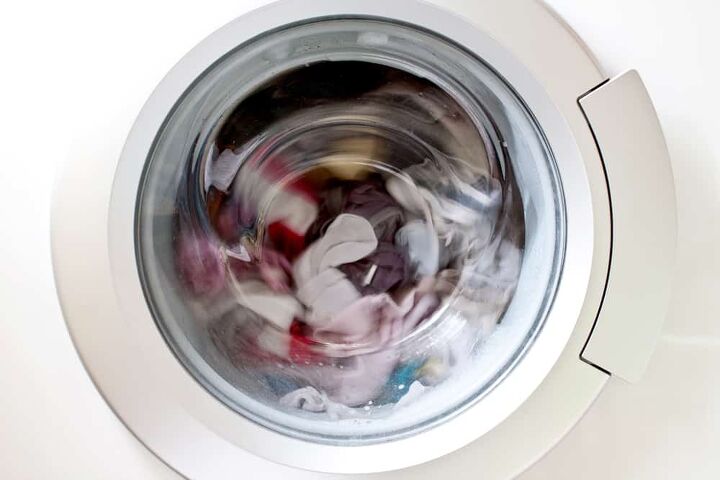






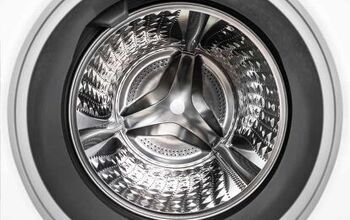

![10 Best Zero Turn Mowers – [2022 Reviews & Ultimate Buyer's Guide]](https://cdn-fastly.upgradedhome.com/media/2023/07/31/9070522/10-best-zero-turn-mowers-2022-reviews-ultimate-buyer-s-guide.jpg?size=350x220)


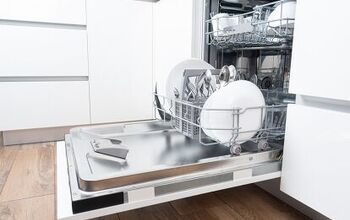

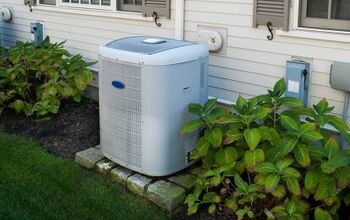




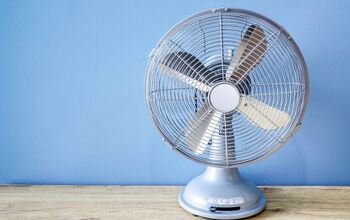


![How To Reset A Whirlpool Cabrio Washer [In 5 Easy Steps!]](https://cdn-fastly.upgradedhome.com/media/2023/07/31/9076531/how-to-reset-a-whirlpool-cabrio-washer-in-5-easy-steps.jpg?size=350x220)

